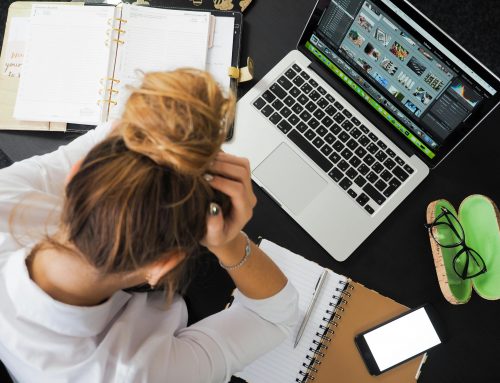I spy on my kids’ social media. There, I said it.
And if you’re a parent, I hope you’re doing the same. To keep up with them, I download all the apps they’re on—which means I often find myself sucked into the digital vortex like a moth to a very overstimulating flame.
Case in point: TikTok. I had to delete that app off my phone because it hijacked my attention span and started whispering sweet nothings like, “You could totally become a hip-hop dancing roller skater.”
TikTok was lying to me. But that’s not the point.
A Surprise Lesson from TikTok
One day, someone on Facebook (the platform that feels more like decaf coffee than hard drugs) suggested a TikToker who breaks down how psychiatric medications affect the body. So I checked it out.
And you know what? It was actually really good.
The creator explained, in plain English, how different medications interact with our brains—why they’re prescribed, what they’re trying to fix, and how they help people feel better. As someone who’s spent decades trying to understand human behavior, I was hooked.
Because here’s the thing: I’ve made a career out of asking the second-most important question in the world—
“Why do I do this?”
(If you think you know the first most important question, email me. Seriously.)
The Search for Stability
Why do we do the things we do—even when they hurt us?
Why do we use coping mechanisms that don’t serve us?
Why do we cling to habits that keep us stuck?
There’s always a reason. Always.
And often, the answer lies in brain chemistry.
It’s All About the Neurotransmitters
Whether we’re talking psych meds, therapy, self-medicating, illegal substances, or “just one more” scroll through Instagram—it’s all in service of one goal: regulating the neurotransmitters that help us feel good.
We’re trying to boost dopamine, serotonin, norepinephrine—those magical brain chemicals that stabilize our moods, energize us, and make life feel worth living.
If you’re low on motivation, feeling scattered, drained, sad, or ungrounded… that’s your body’s way of telling you something is off in that system. And whether you seek help from a doctor, a therapist, or a TikTok rabbit hole, the end goal is the same: to feel balanced, happy, secure, and whole.
You’re More Normal Than You Think
The truth? Every single one of us is chasing that high.
And you’re not broken for needing help to get there.
Your body has its own unique chemical blueprint. And with the right support, the right strategy, and the right understanding of what your brain needs, you can absolutely create a formula that works for you.
Here’s What I Want You to Know
Two big takeaways I hope you hold onto:
-
You are completely normal.
You’re doing what all of us are doing—trying to find your happy place. -
Happiness isn’t random.
There’s a science to feeling good. It’s not just “willpower” or “positive thinking.” It’s chemistry. It’s wiring. And you can learn to work with your brain instead of against it.
If you’ve been feeling off, that’s your sign to get curious—not judgmental.
Start asking why.
And then? Go find your version of happy. It’s not as far away as it feels.






